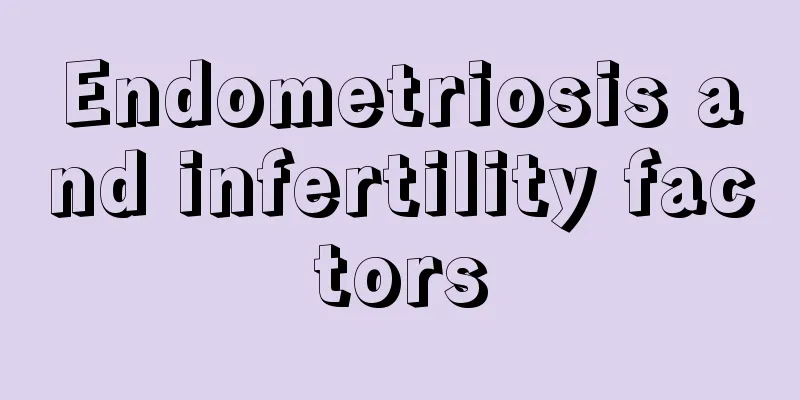Endometriosis and infertility factors

|
Endometriosis is a common disease among women. This type of disease is very harmful to the female body. When women suffer from this disease, they should receive timely treatment. Otherwise, when the disease becomes serious, it will have a great impact on women's fertility. What are the factors of endometriosis and infertility? Many people are not very clear about this. The following is a detailed introduction so that you can have more understanding of this type of problem. Endometriosis and infertility factors: 1) Luteal phase insufficiency: The number of LH receptors on the follicles and luteal cells of endometriosis patients is less than that of women, resulting in insufficient luteal secretion during the luteal phase and affecting conception. 2) Luteinized unruptured follicles. The symptom of this disease is that the ovaries do not ovulate, but the follicular cells are luteinized. Although the patient's body temperature is biphasic and the endometrium shows the secretory phase, there is no possibility of pregnancy. The diagnosis is based on the fact that, under laparoscopic examination, no ovulation hole is seen on the surface of the ovary 4 to 10 days after the expected ovulation period; when examined 2 days after the LH peak, the follicles continue to grow; and during the menstrual cycle, there is no sudden increase in the amount of peritoneal fluid, especially estrogen and progesterone in the peritoneal fluid. Reports have confirmed that the incidence of LUFS in patients with endometriosis is significantly higher than that in normal women, and is complicated by infertility. Konincks proposed that due to the presence of LUFS, the levels of estrogen and progesterone in the peritoneal fluid are low, which does not inhibit the implantation of endometrial cells that flow back into the abdominal cavity, thus leading to pelvic endometriosis. Therefore, he believed that LUFS is the cause of endometriosis. But this theory has not yet been recognized by people. 3) Autoimmune reaction: The anti-endometrial antibodies produced by B lymphocytes in endometriosis patients can interfere with the delivery and implantation of early fertilized eggs. The increase in macrophages in the abdominal cavity can also phagocytose sperm and interfere with the division of egg cells, thus leading to infertility. After understanding the factors of endometriosis and infertility, if you have such a disease, you must make timely improvements. In addition, women must actively cooperate when treating endometriosis and infertility, and pay attention to diet and emotions. Improper diet is of no help to the treatment of the disease, and emotional instability will also have an impact on oneself. |
<<: What causes bleeding after menstruation?
Recommend
What are the symptoms of postpartum heel pain?
Postpartum women are prone to heel pain due to po...
EPA safe intake for pregnant women
EPA is very important to the body of pregnant wom...
I never thought that changing the order of eating would make such a big difference
Expert of this article: Gu Ruili, Deputy Chief Te...
How is cheese made? Can cheese be baked?
Cheese, also known as cheese, or translated as ch...
What to do if a susceptible population has mixed infection? Part 2 of a series of interpretations on prevention and treatment of respiratory diseases in winter
On November 26, Mi Feng, spokesperson of the Nati...
[Medical Q&A] What physical factors may affect pregnancy?
Planner: Chinese Medical Association Reviewer: Sh...
How long does it take for the fetal heartbeat and fetal bud to appear after the gestational sac is formed?
Generally, women who are preparing for pregnancy ...
Postoperative care for uterine fibroids
When there is a problem with the body, we must ma...
Can I take the medicine during ovulation?
Everyone should know that a woman's chances o...
Will I continue to have my period during the confinement period?
After giving birth, women will directly enter the...
Postpartum recovery price
Pregnancy can easily cause weight gain, so a lot ...
Difference between placenta previa and placental abruption
There are so many things that women need to pay a...
What to eat for ovarian enlargement
Ovarian enlargement is also called ovarian cyst. ...
What are the benefits of drinking oatmeal during breastfeeding?
The nutritional and health value of oatmeal is re...
Right adnexal cyst picture
Important reminder: The right adnexal cyst of fem...









